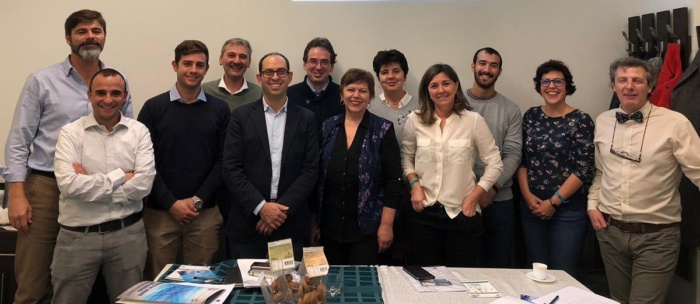The Digiweld project aims to take a step forward in embracing the digital era by providing digital tools for open education and innovative practices for apprentices (16-20 years old) from vocational schools (VET) and for welders who wish to acquire new skills and competences in the welding field to become more qualified (C-VET). This project is an initiative funded under Erasmus+ Programme.
These are the partners involved:

As its main objective, the Digiweld project aims to introduce new open and innovative learning digital tools to reduce time and costs for industrial partners by focusing both on apprentices needs and employers’ requirements.
This digital education and training in welding project looks for the development of:
- Curricula for training welders using simulators and updating EU Guidelines IAB–089r5–14.
- Digital tool to be inserted in simulators as modules dedicated to the training of apprentices (16-20 years old).
- Training 24 trainers and involving min 60 apprentices in the welding profession.

These objectives can be achieved through:
- Creating an open and innovative digital learning system (SIMTRANET) and digital education materials dedicated to the training of apprentices who want to acquire digital competences and basic skills for three different welding procedures (TIG, MIG, MMA). The system aims to increase the level of learning of the apprentices during training.
- Proposal of non-formal component of the education and training EU guidelines for the welding apprentices, to attract them to the knowledge and responsibilities of the profession of welder. The system will allow the apprentice to access the information and perform practice time on welding simulator
- Creating conditions for international groups of apprentices to actively participate to simultaneous training and welding contests in the most possible safe conditions, by using specific Stand-alone simulators or in virtual classrooms.
- Creating opportunities for the apprentices with learning difficulties or economically unstable to use digital system for their training which will increase their access on the labour market.
Two meetings have taken place to date. The first of them from 13 to 15 November 2018 as a contact to schedule the project, review budgets and actions and assign the first works. The second one took place on 5th and 6th June as a follow-up to the project and review of the first actions already carried out. Seabery looks forward bringing the next step in welding training to both teachers and trainees through integrating the latest technologies and digital tools.







